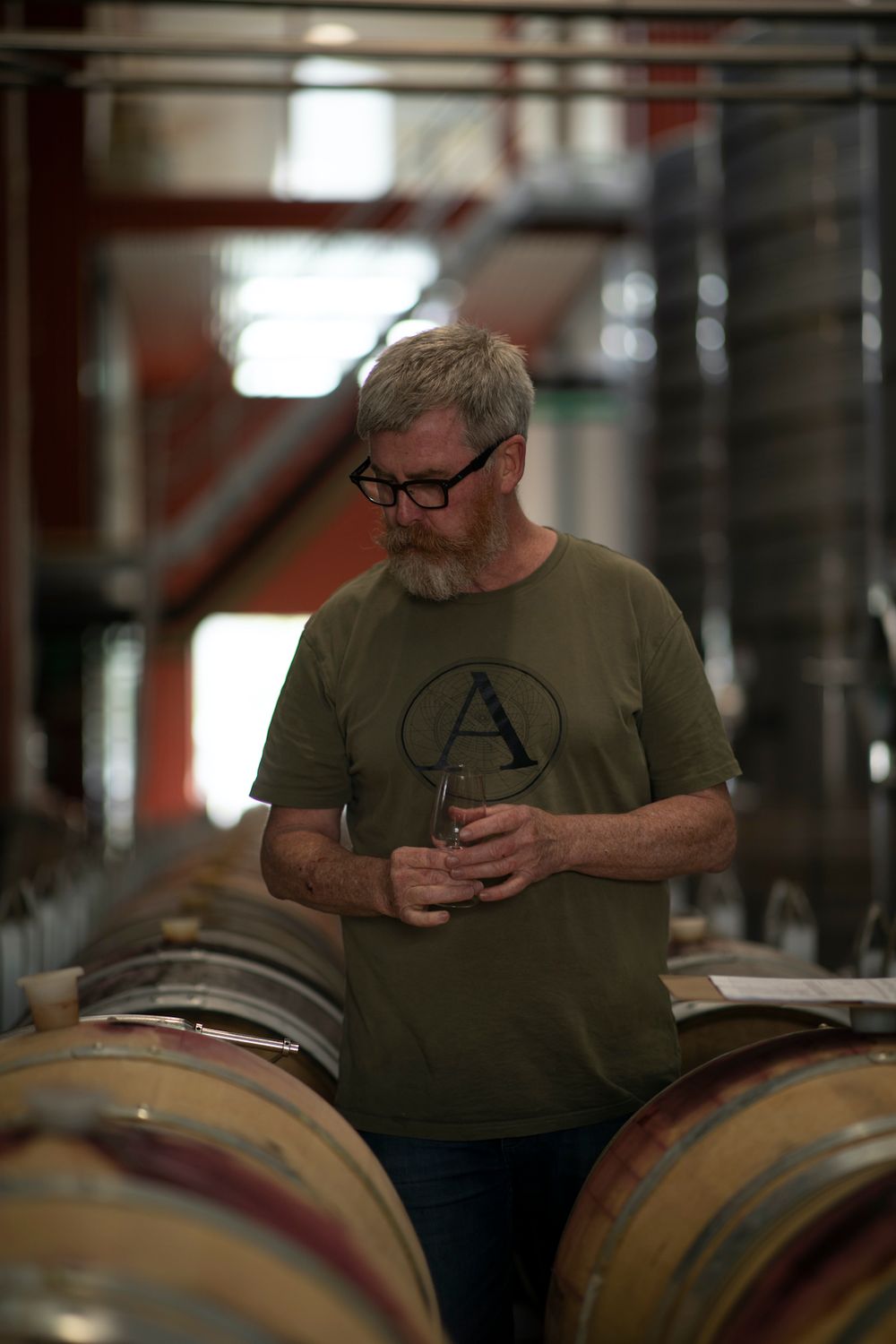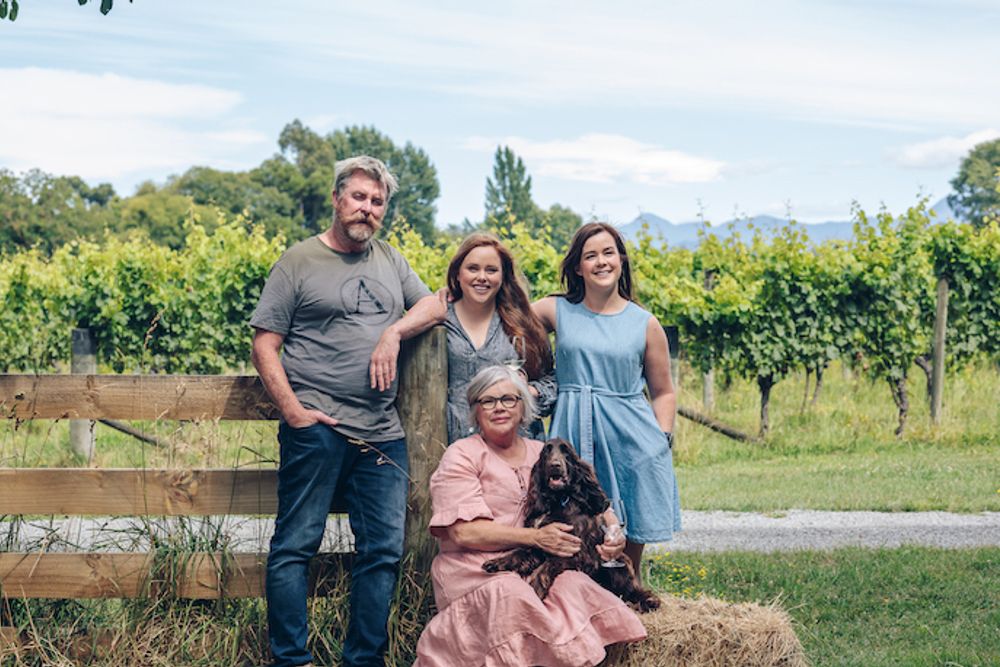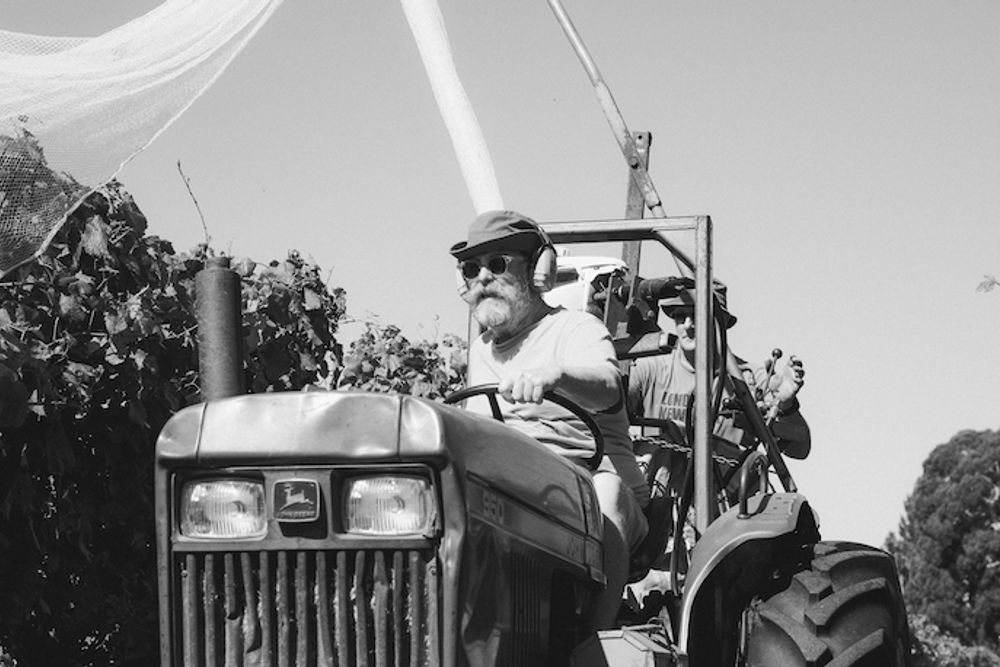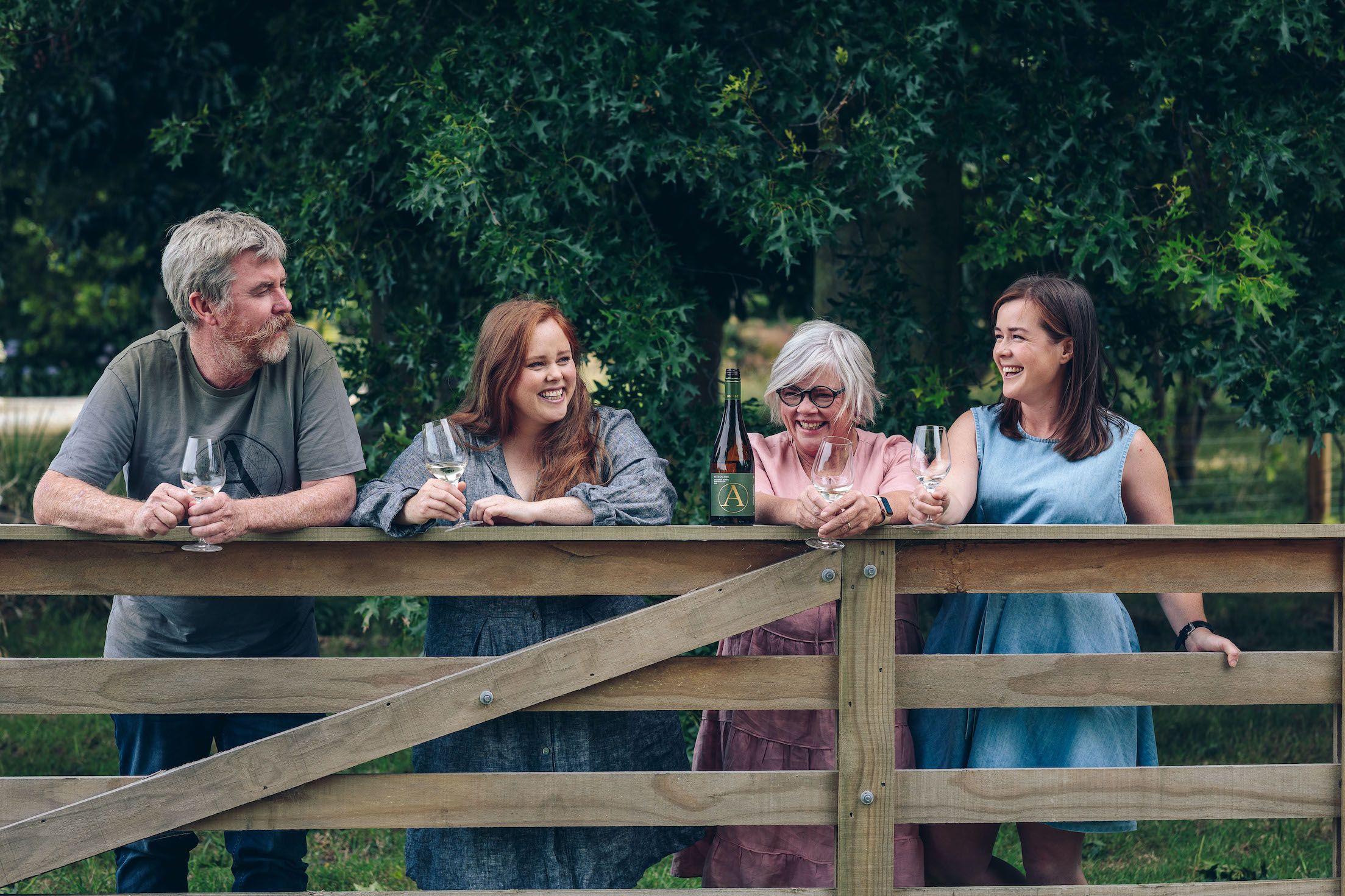“We made the decision to halve our air travel in early 2020, before the pandemic hit, to reduce our carbon footprint. So we have exceeded our goal…!” writes Astrolabe’s Simon Waghorn

Simon Waghorn
Simon and Jane Waghorn co-founded Astrolabe in 1996 with two friends and took complete control of the Marlborough-based winery three years ago. The estate is celebrated for wines that express the variety of their soil and the nuances of their terroir: from the Wairau and Awatere Valleys to the Kekerengu Coast. Astrolabe wines reflect the Waghorn’s innovative treatment of specific parcels and winemaking process to capture undiscovered qualities of individual grape varieties, resulting in some of the most pure and elegant wines from the region.
How has life been for the past 18 months?
By international standards, we’ve had a fairly normal eighteen months. After our initial lockdown, New Zealand quickly managed to control the virus spread. We’ve lived a very normal life since restrictions were lifted and have been able to travel within New Zealand, visit bars and restaurants without social distancing measures and connect with family and friends face to face. We have set aside any thoughts of international travel to trade events or to support the distributors selling our wine overseas. The ongoing quarantine requirements associated with foreign travel, and the risks of infection abroad, have kept us in New Zealand. We still haven’t got back into the swing of travelling for work within New Zealand, and as I write this, the country has gone into lockdown due to an outbreak of the Delta variant in Auckland! We’re hoping this will be brief!
How has the pandemic affected your winery?
Like most Marlborough producers, we send most of our wine to export markets. New Zealand sales remained strong, with supermarkets staying open even through the most stringent lockdowns. Most wine sold in New Zealand is through our two big supermarket chains. Other wine retail was hit initially, but many of the strong independent wine shops had well-developed mail order systems which they were able to ramp up. Hardest hit in the trade were restaurants, most of which shut down completely through our relatively brief lockdowns. We also built some significant sales with our own direct to consumer mail order. Surprisingly, we managed to increase our annual domestic sales through the first year of the pandemic.
Our overseas markets were up and down, dependent on their particular business model. Places that were heavily reliant on resorts and tourist trade have essentially stopped selling anything. Other tourist destinations are greatly reduced in sales volume and are ticking over only based on the resident population’s wine drinking. Some of our large markets have been able to adapt and reroute restaurant sales down a retail path. Other overseas markets have been retail dominant and have had strong years due to housebound customers spending a little more on finer wine to enjoy while dining in.
Has life returned to normal yet?
Life was normal for a long period of time, until the Delta variant hit two weeks ago. New Zealanders were leading a completely normal life, with the exception of being able to travel to visit family overseas or take holidays abroad. It was easy to forget the pandemic existed, and we felt very lucky to be safe in our national ‘bubble’. We’ve had a reality check this month, unfortunately! From a New Zealand-wide business sense, our biggest issue is shipping availability and costs.

The Waghorn took complete control of Astrolabe in 2018
What has been the hardest thing about adapting to the ‘new normal’?
Some of our family members have missed special occasions due to international travel restrictions. In particular, there have been two weddings for brothers-in-law of my daughter that have been foregone, despite repeat postponements to try and beat lockdowns and quarantines. Extended family Christmas in Australia was also another disappointing no-go for her. We’ve missed being able to travel to our key export markets and spend time with the people who look after Astrolabe there.
Has anything good come out of it? If so what?
We have enjoyed a quieter pace of life, without the overseas travel, airports, hotels and frenetic activity crammed into sales campaigns abroad. I think we have taken greater pleasure from home comforts, living in a wonderful vineyard setting and enjoying being around as every season has run its course. We have also enjoyed the brilliant technology that has allowed us to communicate via our screens with people around the world and conduct many successful virtual wine tastings. We made the decision to halve our air travel in early 2020, before the pandemic hit, to reduce our carbon footprint. So we have exceeded our goal…!
What lessons do you think have been learned in the past 18 months?
We’ve learnt the value of having a varied route to market, with many countries and different sales avenues. It is great to be nimble enough to sell wine to the off-trade when the on-trade is locked down. It is also important to look after domestic sales and build direct to consumer business.
Has it led to anything new in the pipeline? Cuvées, varietals, styles etc?
Covid hasn’t changed our winemaking at all – we still are heavily focussed on making the Sauvignon Blanc that Marlborough is famous for. We make wine from six other varieties, as well as one orange wine and several rosé wines – so already have a diverse range to meet the shifting demands of a Covid world.
In terms of the effect on your winemaking – how impactful has COVID been compared to Climate Change?
For us, the only impact of Covid has been a surprising upswing in demand, which has meant earlier bottling of our new vintage of Sauvignon Blanc. This doesn’t impact wine quality in any sense, as we still have time for a long fermentation and for the new wine to settle before it goes to bottle. We are keeping a watchful eye on climate change and have had a string of very early harvests. The long growing season, harvest in early autumn and good acid retention are hallmarks of Marlborough winemaking. It would be concerning if our climate leads to earlier picks, warmer nights and days at harvest, and a loss of the herbaceous drive that characterises our Sauvignon Blanc. To date, however, our wine seems to be as classic in style as ever.

Simon Waghorn taking the bird nets off the vines
What stage of the current growing cycle are you?
At the moment, pruning is coming to an end, and we are waiting for the new buds to burst from the vines as they shake off dormancy.
Is 2021 going to be a good harvest?
Yes – great balance and concentration in the wines and appealing aromatics.
Any particular characteristics to note?
The wines tend to have a lovely palate weight, possibly the result of the very low cropping levels experienced in 2021. Our vineyards on the Kekerengu Coast, in the south of Marlborough were particularly strong this year. This region is our most susceptible to vintage variation, and 2021 had good concentration with fruit coming in in April, many weeks after harvest had finished in the northern valleys.
Did you go Direct To Consumer? If so what were the lessons learned?
We already had a modest direct to consumer channel domestically. Our main challenge was to create an experience for our customers that reflected our wine quality. We have made changes to our packaging to be more elegant and eco-friendly. Our website was also updated to match this aesthetic and to share more stylistic and technical information with drinkers here and around the world.
The wines of Astrolabe are imported and distributed in the UK by Armit Wines which is a supplier partner of The Buyer. To find out more about Armit click here.
































